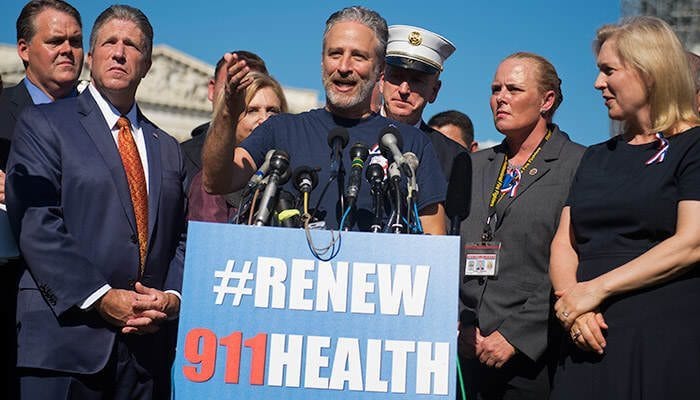It’s been a long wait, but now, as we get ready to draw the curtain on 2015, the American legislature is finally responding to 9/11 first responders – on Friday, Congress passed a bill re-authorizing funding for the James Zadroga 9/11 Health and Compensation Act. What a way to close out 2015!
The reauthorization will keep care programs for injured first responders in place through 2090. To make sure the bill was passed, lawmakers tied it to the omnibus spending bill that will fund government programs next year.
What Key Measures Are Included in the 9/11 First-Responder’s Bill?
First passed in 2010, the James Zadroga Act provides support for those who were injured or contracted illnesses based on their work at Ground Zero directly after the 9/11 attacks of 2001. According to the Iraq and Afghanistan Veterans of America (IAVA), of the 72,000 first responders who worked at Ground Zero in the months following the devastating 9/11 attacks, over 33,000 have at least one 9/11-related medical problem. The bill sets up a World Trade Center Health Program that is vital in delivering needed health care to 9/11 injury victims, and monitoring firefighters, police, and other first responders for signs of chronic illness.
In the days after the attacks, a billowing cloud of dust settled over the area, containing some 400 tons of airborne asbestos and other toxins, including mercury and lead. 1,700 brave men and women have already passed away from what are believed to be diseases resulting from 9/11 recovery work. And sadly, that number is only expected to increase over the next few years due to the long latency period of many cancers, including the asbestos-caused cancer, mesothelioma.
While the original bill was a real blessing to America’s injured heroes who answered the call at Ground Zero, it was only funded through 2015. Months ago, advocates for 9/11 injury victims were calling on politicians to pass a re-authorization. One would think that such a bill would be a no-brainer; instead, members of the House and Senate sat on their hands, lost opportunities to bring the bill to a vote, and even proposed lesser funding solutions that would just kick the ball down the road a few years. In all of this stalling, 9/11 first-responders were left to face the cost of highly expensive medical procedures on their own.

Who Were the Key Players in Advocating for 9/11 Heroes?
Although many legislators seemed complacent, a handful of very determined people made sure that inaction on Zadroga become public. Jon Stewart, host of The Daily Show until earlier this year, used his television persona and his off-screen hours to lobby for an adequate re-funding of the bill. Senators such as Kirsten Gillibrand (D-NY) and House Representatives Carolyn Maloney (D-NY) and Peter King (R-NY) – along with many others – also pushed their peers in Congress for a Zadroga extension. Another major advocate is John Feal, a former NYC construction worker, who led the charge to pack committee meetings and visited individual House members at their offices.
All of their hard work and effort led directly to this bill’s passage; and just like the 9/11 heroes before them, they, too, are heroic. The new Zadroga re-authorization will fund the program, not just for a handful of years, but for decades – 7.5 decades, to be exact. It’s a real win for the people who sacrificed their health and well-being to rescue others at Ground Zero, and to do the difficult work of recovery.
So our hats are off: forever and always to these brave 9/11 first responders – but also to the great people who helped make the new bill a reality.